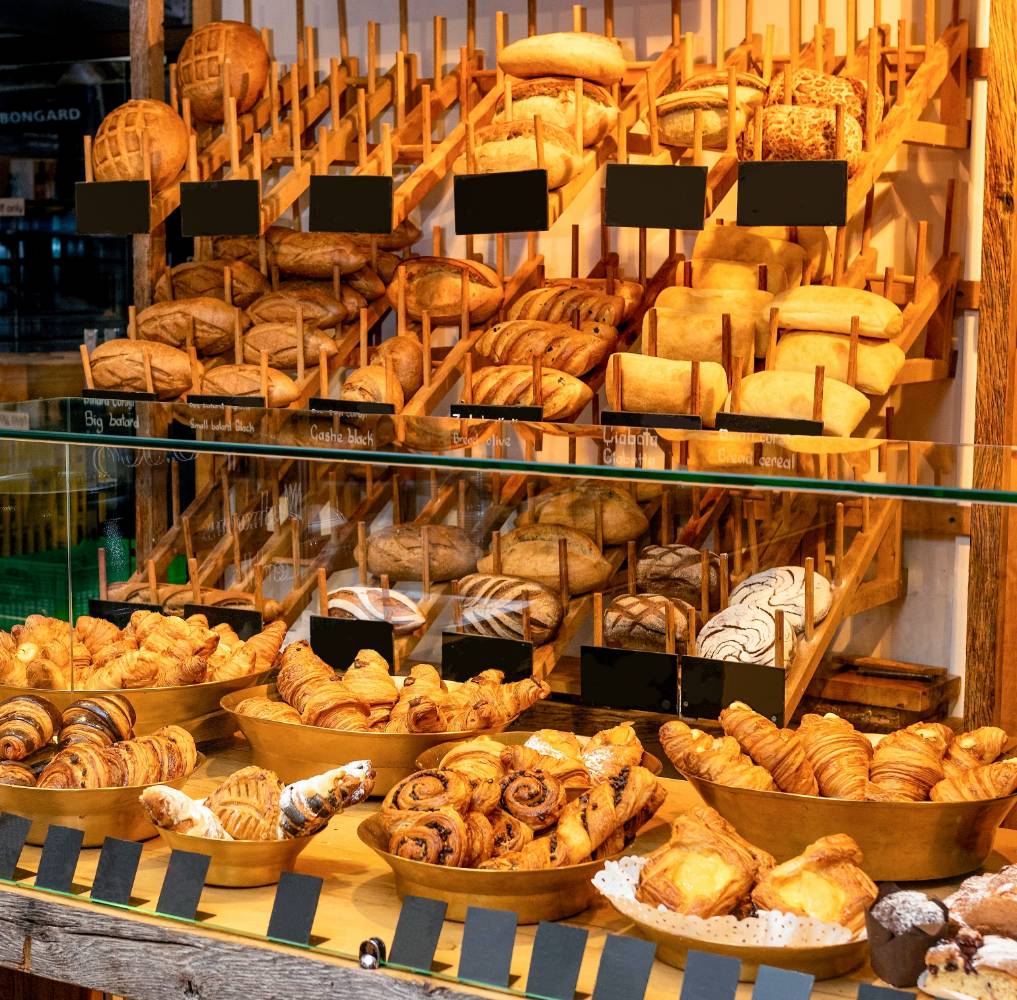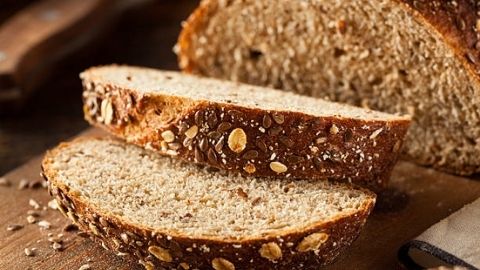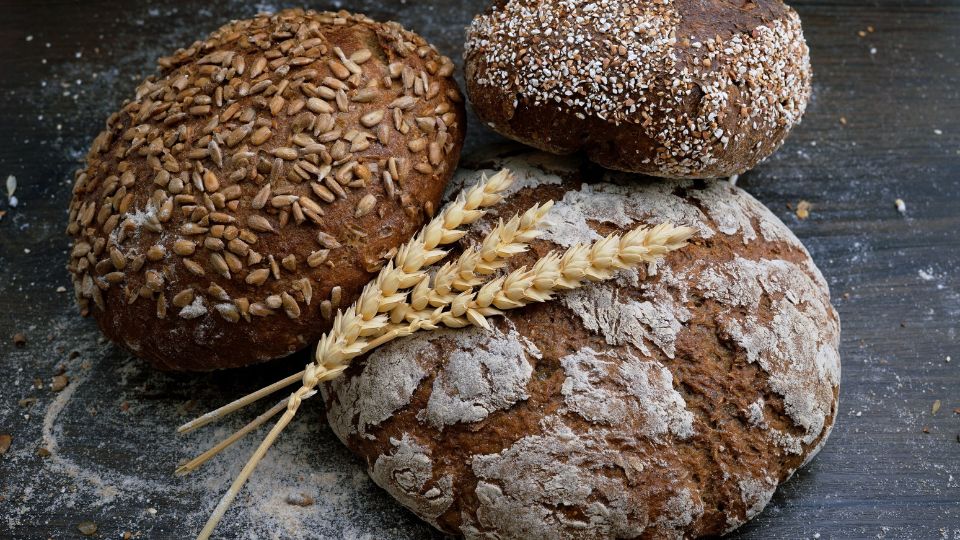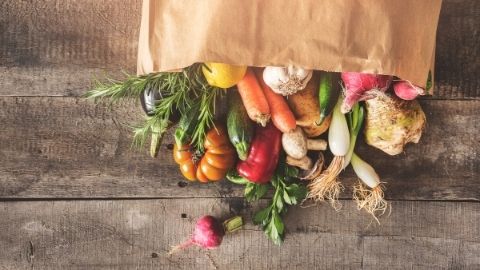Who Values Organic Specialty Bakery Products?
Introduction
Organic wheat flour is usually more expensive than conventional wheat flour due to the higher organic wheat production costs (McBride et al., 2012). Using organic flour in specialty/artisan bakery products such as bread loaves, croissants, and large cookies, which are typically more expensive, could help absorb organic wheat flour costs. However, consumers have higher quality expectations for the specialty bakery products, and superior quality is necessary to justify the higher price point.
In this fact sheet, we examine differences in sociodemographics and lifestyle choices between those who view organic as important when purchasing specialty bakery products and those who don’t, with the aim to identify a target market of consumers who prefer organic specialty bakery products. Additionally, we evaluate other important product attributes to consumers seeking organic specialty bakery products. We consider a variety of other labels and attributes, including taste, which is one of the most important food attributes in past studies (Sajdakowska et al., 2019; Drugova et al., 2020). Consumer taste ratings for organic and conventional specialty bakery products are compared for those who value organics and those who don’t to evaluate the impact of taste beliefs on consumer demand for organic specialty bakery products.
Identifying Consumers Prioritizing Organics
Data were collected through a nationwide consumer survey conducted online in the fall of 2021 with 721 responses. We asked respondents whether an organic label was important to them when purchasing the examined specialty bakery products (bread loaf, croissant, and large cookie). Table 1 reports averages for the socio-demographic variables for the entire sample, as well as averages separately for those respondents who indicated that organic was important for at least one of the three products (N = 411) and those who indicated that organic was not important for any of the three products (N = 310).
Table 1 shows that there are significant differences between the two groups of respondents. On average, those who consider organic important are younger, more likely to be female, more likely to have children under 18 in the household, less educated, more likely to be employed, earn more, and less likely to be Caucasian compared to those who indicated that organic wasn’t important to them. Hence, these results show a distinct target market for organic specialty bakery products.
Table 1.
Sample Demographics
|
Variable |
Description |
Average |
Organic important |
Organic |
|
Age |
1: Under 18; 2: 18–24; 3: 25–44; 4: 45–64; 5: 65 and older |
3.65 |
3.44 |
3.92* |
|
Female |
1: female; 0: male |
0.50 |
0.54 |
0.46* |
|
Children under 18 |
1: present in the household; 0: not present in the household |
0.34 |
0.42 |
0.23* |
|
Education |
1: middle school; 2: high school; 3: some college; 4: 2-year college; 5: 4-year college; 6: graduate school |
3.71 |
3.56 |
3.91* |
|
Employed |
1: yes, full- or part-time; 0: no |
0.65 |
0.70 |
0.59* |
|
Income |
1: <$10,000, … 6: $50,000–$59,999, … 12: ≥$150,000 |
5.98 |
6.35 |
5.71* |
|
Caucasian |
1: yes; 0: no |
0.78 |
0.70 |
0.88* |
|
N |
Number of respondents |
721 |
411 |
310 |
Note. The asterisk (*) means that the difference between those who think organic is important and those who don’t is statistically significant.
When we further examine respondent lifestyles, we find that those who prefer organics are more likely to follow a vegetarian or vegan diet, avoid eating processed foods and food products with additives, are more concerned about source of their food during the COVID-19 pandemic, and food safety in general. They are also more likely to grow their own food, buy food locally, and try to reduce their impact on the environment (see Table 2).
Table 2.
Lifestyle Statements
|
Statement |
Average |
Organic important |
Organic |
|
I follow a vegetarian or vegan diet. |
1.74 |
1.94 |
1.48* |
|
I eat fresh produce (fruits, veggies) daily. |
3.96 |
4.02 |
3.89 |
|
I avoid eating processed foods. |
2.94 |
3.11 |
2.71* |
|
I avoid eating food products with additives. |
3.02 |
3.23 |
2.74* |
|
Physical activity or exercise is an important part of my routine. |
3.68 |
3.74 |
3.59 |
|
I grow/raise my own food. |
2.11 |
2.27 |
1.90* |
|
I buy food from local farmers if available. |
3.53 |
3.70 |
3.31* |
|
The COVID-19 pandemic increased my concern about where my food comes from. |
3.24 |
3.55 |
2.83* |
|
I take measures to reduce my impact on the environment (avoid use of plastics, control water use, etc.). |
3.60 |
3.71 |
3.44* |
|
I am concerned about food safety. |
3.90 |
4.04 |
3.71* |
|
I/we eat out frequently. |
2.94 |
3.01 |
2.85* |
Notes. Respondents were asked to indicate their level of agreement with the lifestyle statements on a scale from 1 = strongly disagree to 5 = strongly agree. An average value greater than 3 means they tend to agree with the statement, while a lower value means that they disagree.
The asterisk (*) means the difference between those who think organic is important and those who don’t is statistically significant.

Important Product Attributes
Respondents were asked what product attributes (besides organic) are important to them when purchasing specialty bakery products. The results reported in Table 3 show that the organic label is important among a relatively small group of respondents, as 38% of respondents consider organic important for bread loaves, 28% for croissants, and only 21% for large cookies. On the other hand, taste, price, and appearance are considered important attributes by the majority, regardless of whether organic is important or not.
Other product attributes were also important to many respondents, but it depended on whether they see organic as important or not. In other words, there are significant differences between respondents who consider organic important and those who don’t, in terms of their needs and preferences related to additional product attributes. Those who consider organic important have a much stronger preference for other labels. They are 2-3 times more likely to consider labels such as “non-GMO,” “locally made,” and “gluten-free” important. Their interest in organics goes hand in hand with their interest in product information that communicates that the product is healthier, such as calorie content, nutritional content, added healthy ingredients, and reduced unhealthy ingredients. Flour type and product texture are also significantly more important among those who prefer organics.
Table 3.
Specialty Bakery Product Attribute Importance Ratings
|
Bread loaf |
Croissant |
Large cookie |
||||
|
Organic important (38%) |
Organic not important (62%) |
Organic important (28%) |
Organic not important (72%) |
Organic important (21%) |
Organic not important (79%) |
|
|
Taste |
71.6% |
69.8% |
77.9% |
71.5%* |
81.8% |
76.5% |
|
Price |
72.7% |
64.4%* |
68.3% |
63.0% |
77.9% |
62.1%* |
|
Flour type |
74.2% |
36.4%* |
54.3% |
22.0%* |
52.6% |
20.5%* |
|
Calories |
49.4% |
23.8%* |
53.8% |
23.9%* |
59.7% |
33.7%* |
|
Appearance |
62.7% |
60.0% |
75.9% |
61.1%* |
68.2% |
64.7% |
|
Nutrition |
73.1% |
32.0%* |
57.3% |
23.6%* |
57.8% |
23.1%* |
|
Non-GMO |
67.9% |
22.2%* |
63.8% |
19.7%* |
63.0% |
20.3%* |
|
Locally made |
65.3% |
38.9%* |
62.8% |
39.3%* |
65.6% |
38.1%* |
|
Healthya |
72.0% |
34.4%* |
50.8% |
19.9%* |
49.4% |
17.3%* |
|
Unhealthyb |
56.8% |
25.3%* |
57.3% |
20.9%* |
68.8% |
30.0%* |
|
Gluten-free |
55.0% |
14.0%* |
50.3% |
12.6%* |
50.0% |
14.5%* |
|
Variety/flavor |
54.2% |
54.0% |
64.3% |
46.0%* |
75.3% |
70.0% |
|
Texture |
68.6% |
55.3%* |
67.8% |
52.3%* |
64.9% |
46.9%* |
Notes. The asterisk (*) means the difference is statistically significant.
a Added healthy ingredient (e.g., fiber)
b Reduced unhealthy ingredient (e.g., salt, sugar, etc.)
Taste Ratings for Organic and Conventional Specialty Bakery Products

Finally, we examined respondent taste ratings for organic and conventional bread loaves, croissants, and large cookies, and whether they vary depending on the importance they place on organics.
Results (see Table 4) show that the taste ratings for both organic and conventional specialty bakery products are significantly different between those who feel organic is important and those who don’t. Also, average taste ratings of organic and conventional bakery products are the same among those who consider organic important. On the other hand, those who don’t think that organic is important rate the taste of conventional products significantly higher than organic products.
Those interested in organics do not have any negative taste biases for organic products, while those who aren’t interested believe the organic product tastes worse. Note that approximately the same share of respondents in each group views the taste of specialty bakery products as important (see Table 3). It is good news that not all consumers have negative taste perceptions of organic specialty bakery products. However, it may be difficult to convince the other consumer group to try organic versions of these products, given how important taste is.
Table 4.
Taste Ratings for Organic and Conventional Specialty Bakery Products
|
Product |
Organic |
Organic |
Diff. |
|
Bread loaf |
|||
|
Organic (O) |
3.73 |
3.51 |
0.22* |
|
Conventional (C) |
3.82 |
3.97 |
-0.15* |
|
Diff. (O - C) |
-0.09 |
-0.46* |
|
|
Croissant |
|||
|
Organic (O) |
3.89 |
3.51 |
0.39* |
|
Conventional (C) |
3.83 |
4.10 |
-0.27* |
|
Diff. (O - C) |
0.07 |
-0.60* |
|
|
Large cookie |
|||
|
Organic (O) |
3.90 |
3.48 |
0.41* |
|
Conventional (C) |
3.96 |
4.16 |
-0.20* |
|
Diff. (O - C) |
-0.06 |
-0.68* |
Note. The asterisk (*) means the difference is statistically significant.
Conclusions
In this fact sheet, we show that there are significant differences in socio-demographics and lifestyle choices between consumers who view organic as important when purchasing specialty bakery products and those who don’t. Those preferring organics also find additional labels and information that communicates healthiness important, which falls in line with their healthier lifestyle choices. Product taste was important to respondents in both groups, but they differed in their taste ratings between organic and conventional specialty bakery products. The findings suggest that there is a segment of consumers who value organic specialty bakery products and do not have negative taste associations with organic products. However, it is also necessary to examine their willingness to pay for organic products to ensure that pricing will cover the additional cost of more expensive organic wheat flour. These findings also suggest that consumers are interested in additional labels (non-GMO, low salt, etc.) and health-promoting adjustments, which could improve product attractiveness and help increase their overall willingness to pay for these products.
References
-
Drugova, T., Curtis, K. R., & Akhundjanov, S. B. (2020). Organic wheat products and consumer choice: A market segmentation analysis. British Food Journal, 122(7), 2341–2358. https://doi.org/10.1108/BFJ-08-2019-0626.
-
McBride, W. D., Greene, C. R., Ali, M. B., & Foreman, L. (2012, August 12–14). The structure and profitability of organic field crop production: The case of wheat. Presented at AAEA annual meeting, Seattle, WA.
-
Nasir, V. A., & Karakaya, F. (2014). Consumer segments in organic foods market. Journal of Consumer Marketing.
- Sajdakowska, M., Gębski, J., Żakowska-Biemans, S., & Jeżewska-Zychowicz, M. (2019). Willingness to eat bread with health benefits: Habits, taste and health in bread choice. Public Health, 167, 78–87. https://doi.org/10.1016/j.puhe.2018.10.018
Published February 2023
Utah State University Extension
Peer-Reviewed Fact Sheet
Authors
Tatiana Drugova, Post-Doctoral Fellow, Department of Applied Economics; Kynda R. Curtis, Professor and Extension Specialist, Department of Applied Economics
Related Research














